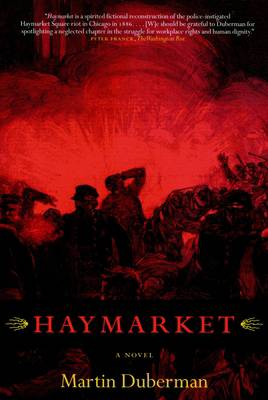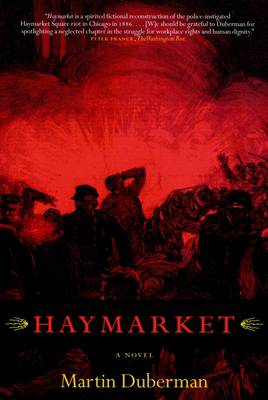
- Afhalen na 1 uur in een winkel met voorraad
- Gratis thuislevering in België vanaf € 30
- Ruim aanbod met 7 miljoen producten
- Afhalen na 1 uur in een winkel met voorraad
- Gratis thuislevering in België vanaf € 30
- Ruim aanbod met 7 miljoen producten
Zoeken
Omschrijving
On the night of May 4, 1886, during a peaceful demonstration of labor activists in Haymarket Square in Chicago, a dynamite bomb was thrown into the ranks of police -trying to disperse the crowd. The officers immediately opened fire, killing a number of protestors and wounding some two hundred others. Albert Parsons was the best-known of those hanged; Haymarket is his story. Parsons, humanist and autodidact, was an ex-Confederate soldier who grew up in Texas in the 1870s, and fell in love with Lucy Gonzalez, a vibrant, outspoken black woman who preferred to describe herself as of Spanish and Creole descent. The novel tells the story of their lives together, of their growing political involvement, of the formation of a colorful circle of "co-conspirators"-immigrants, radical intellectuals, journalists, advocates of the working class-and of the events culminating in bloodshed. More than just a moving story of love and human struggle, more than a faithful account of a watershed event in United States history, Haymarket presents a layered and dynamic revelation of late nineteenth-century Chicago, and of the lives of a handful of remarkable individuals who were willing to risk their lives for the promise of social change.
Specificaties
Betrokkenen
- Auteur(s):
- Uitgeverij:
Inhoud
- Aantal bladzijden:
- 336
- Taal:
- Engels
Eigenschappen
- Productcode (EAN):
- 9781583226711
- Verschijningsdatum:
- 5/04/2005
- Uitvoering:
- Paperback
- Formaat:
- Trade paperback (VS)
- Afmetingen:
- 160 mm x 233 mm
- Gewicht:
- 439 g

Alleen bij Standaard Boekhandel
+ 30 punten op je klantenkaart van Standaard Boekhandel
Beoordelingen
We publiceren alleen reviews die voldoen aan de voorwaarden voor reviews. Bekijk onze voorwaarden voor reviews.











